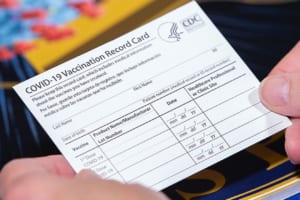While living in the Southeast Asian region, it’s easy to forget about U.S. tax obligations, especially if the taxpayer’s income is deemed “minimal.” Let’s first re-visit our tax filing requirements, where an excerpt is noted right on the last page of one’s U.S. Passport, “All U.S. Citizens working and residing abroad are required to file and report on their worldwide income. Consult IRS Publication 54 …”
Tax practitioners may use the standard deduction as the filing threshold. For tax year 2024, single status filers can claim up to $14,600 as a standard deduction. Therefore, if one can maintain and produce supporting documentation that the tax year’s income is below the standard deduction threshold, the taxpayer may opt to not file a U.S. Income Tax Return. However, it’s good practice to still file a tax return to show the U.S. Internal Revenue Service that your income is below the standard deduction and should generally yield a $0 tax liability. However, if a taxpayer’s worldwide income exceeds the standard deduction, one should prepare and file an income tax return. Failure to file can lead to penalties and interest and this results in a delinquent status, whether for paying or filing.
Furthermore, there are various considerations for having consistent annual tax returns. Specifically, two U.S. immigration-related examples come to mind:
1) Petitioning family members;
2) Renouncing U.S. Citizenship.
For both scenarios, the U.S. government requires evidence of U.S. tax filing .
While there are several avenues to remedy a delinquent status, let’s focus on the following two examples:
- File the missing years as soon as possible, and pay any taxes owed (preparers can compute estimated penalties and interest or taxpayers can wait for IRS assessments and notices); or
- Go through an IRS Amnesty Program (eligible U.S. taxpayers may qualify for the Streamlined Foreign Offshore Procedures).
The Streamlined Foreign Offshore Procedures (“SFOP”) stipulate specific eligibility and filing requirements. Some of these are that the failure to file and pay was non-willful and that the taxpayer must meet the non-residency requirement of being physically present outside the United States for at least 330 full days for the last three years and filing of Financial Crimes Enforcement Network Form 114, also referred to as the Report of Foreign Financial Accounts, among others.
Our team can assess and help determine if the SFOP would be a suitable approach for delinquent tax filers.
ABOUT ARANCEL CONSULTING
Arancel Consulting is a boutique U.S. Tax and Consultancy firm based in Manila, Philippines. The firm specializes in U.S. Expatriate Tax Compliance, U.S. Tax Consultancy, and U.S. Business Management Services. The firm partners with Enterline Partners for U.S. immigration referrals and consular services.
ENTERLINE & PARTNERS CONSULTING
Ho Chi Minh City, Vietnam Office
146C7 Nguyen Van Huong St, Thao Dien Ward,
District 2, Thu Duc City
Ho Chi Minh City, Vietnam
Tel: +84 933 301 488
Email: info@enterlinepartners.com
Facebook: Enterline & Partners – Dịch vụ Thị thực và Định cư Hoa Kỳ
YouTube: @EnterlineAndPartnersConsulting
Website: http://enterlinepartners.com
Manila, Philippines Office
LKG Tower 37th Floor
6801 Ayala Avenue
Makati City, Philippines 1226
Tel: +63 917 543 7926
Email: info@enterlinepartners.com
Facebook: Enterline and Partners Philippines
Website: https://enterlinepartners.com/language/en/welcome/
Copyright 2025. This article is for information purposes only and does not constitute legal advice. This article may be changed with or without notice. The opinions expressed in this article are those of Enterline & Partners only.








